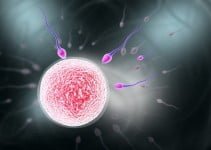Are you fond of alcohol? If so, you might be one of the many who are asking this common question: does alcohol affect fertility? Well, you have come to the right place as the information below will tell you how alcohol consumption can negatively affect fertility both in women and men, even resulting in infertility in some cases.
If you are a woman who is abusing alcohol, your reproductive system can be affected in several negative ways. Alcohol consumption can cause a lack of ovulation, absence of menses, or abnormal growth of the endometrial lining [1].
As it pertains to your fertility, the effects of alcohol could be a lot greater than you can imagine. Your fertility can be lowered even with moderate consumption. Research shows that this could happen if you are drinking five or less alcoholic beverages weekly [2].
The good news is that moderate alcohol consumption doesn’t affect fertility. It has been shown that couples who consume more than five alcoholic beverages in a week, however, could take a little longer to conceive.
When it comes to men, alcohol consumption might lead to elevated levels of estrogen, which may affect sperm development and hormone levels [3]. In addition, chronic alcohol usage might be responsible for destroying the cells inside the testicles which generate sperm [4].
Men who decide to abstain from alcohol must get a semen analysis done a few months after, as sperm requires about three or more months to develop.
Risks of Drinking Alcohol during Pregnancy
Doctors usually recommend that couples be upfront about alcohol consumption before they try to get pregnant, in order to offer assistance or advice for them to overcome alcoholism if it is a problem. Each case varies, so it is important to speak with a fertility specialist directly about your alcohol use and fertility.
It is well-known that women who consume alcoholic beverages during pregnancy might cause major harm to their baby’s health [5]. The embryonic stage takes place two to eight weeks after fertilization.
This is the most crucial stage of fetal development because cell migration, cell differentiation, and the development of all the major organ systems take place during this time.
For this reason, the embryo is highly susceptible to teratogens during this interval. Teratogens are agents that can negatively impact the development of the fetus in the womb; examples include certain drugs and alcohol.
So the earlier the mother consumes alcohol in her pregnancy, the worse it is for the developing baby. Furthermore, females who are alcoholics will put their babies at a greater risk of suffering from fetal alcohol syndrome, a condition that is associated with growth deficiency, mental retardation, atypical facial exterior, behavioral disturbances, congenital heart defects, and brain abnormalities [6].
As discussed, the baby’s development can be greatly affected whilst still inside the womb, often times leading to impaired fetal development and growth as well as increased risk of sudden abortion.
All in all, if you are drinking excessive amounts of alcohol during pregnancy, it can lead to birth defects as well as increase the risk of placental abruption, stillbirth, pre-term labor, miscarriage, and other negative consequences.
The results from the studies are very clear; women should avoid alcoholic beverages while trying to get pregnant. It might be time for you to quit if you are already struggling with fertility issues and think that consuming alcohol is contributing to your problems.
Aside from that, it will also be time to stop if you are aware of your drinking problem. It might be very difficult for you to quit if you are drinking regularly, say more than five drinks or even more each week, so you might want to seek help from friends, family, your health care practitioner, or a counselor.
In the long run, quitting alcohol will increase your overall fertility and long-term health.
Here are some important conclusions from studies which were done on fertility and alcohol consumption:
- Alcoholic drinks should be avoided by both women and men while they are trying to get pregnant.
- Women will have lowered fertility if they consume five or more alcoholic drinks weekly.
- Women who drink more than five alcoholic beverages weekly will take longer to conceive.
- Infertile females who seek medical care have shown to consume significantly higher amounts of alcohol than those who get pregnant naturally.
- Alcohol will depress the adrenal glands and slow down the release of adrenal hormones. This can directly affect libido and egg health.
- Men who consume alcohol regularly have a much lower sperm concentration and motility, plus a lesser chance of fertilization.
- Excessive alcohol consumption is associated with lower number of normal sperm count in men who have poor sperm quality.
- Alcoholic drinks contain high amounts of sugar. Excessive amounts of sugar contribute to hormonal imbalance, yeast infection, insulin resistance, lowered immunity, as well as mineral and vitamin deficiency. All of these things can affect fertility for both women and men.
Overall, you may not be completely discouraged from consuming alcohol if you are trying to get pregnant unless you have an infertility problem. Since each case is different, you should consult a fertility specialist who can better evaluate your situation and guide you to achieve the best chances of getting pregnant.
Now, if you are doing a costly infertility procedure such as IVF, you need to quit drinking alcohol for at least three to six months before any procedure. It will not be worth the risk to drink alcohol regularly if it is going to ruin the potential outcome of the procedure.
References
- Infertility in women and moderate alcohol use -NCBI [Link]
- Lifestyle factors in people seeking infertility treatment – A review -NCBI [Link]
- Alcohol and fertility: how much is too much? -NCBI [Link]
- Effect of chronic alcoholism on male fertility hormones and semen quality [Link]
- Alcohol Use in Pregnancy – CDC [Link]
- What Happens When Children with Fetal Alcohol Spectrum Disorders Become Adults? -NCBI [Link]



